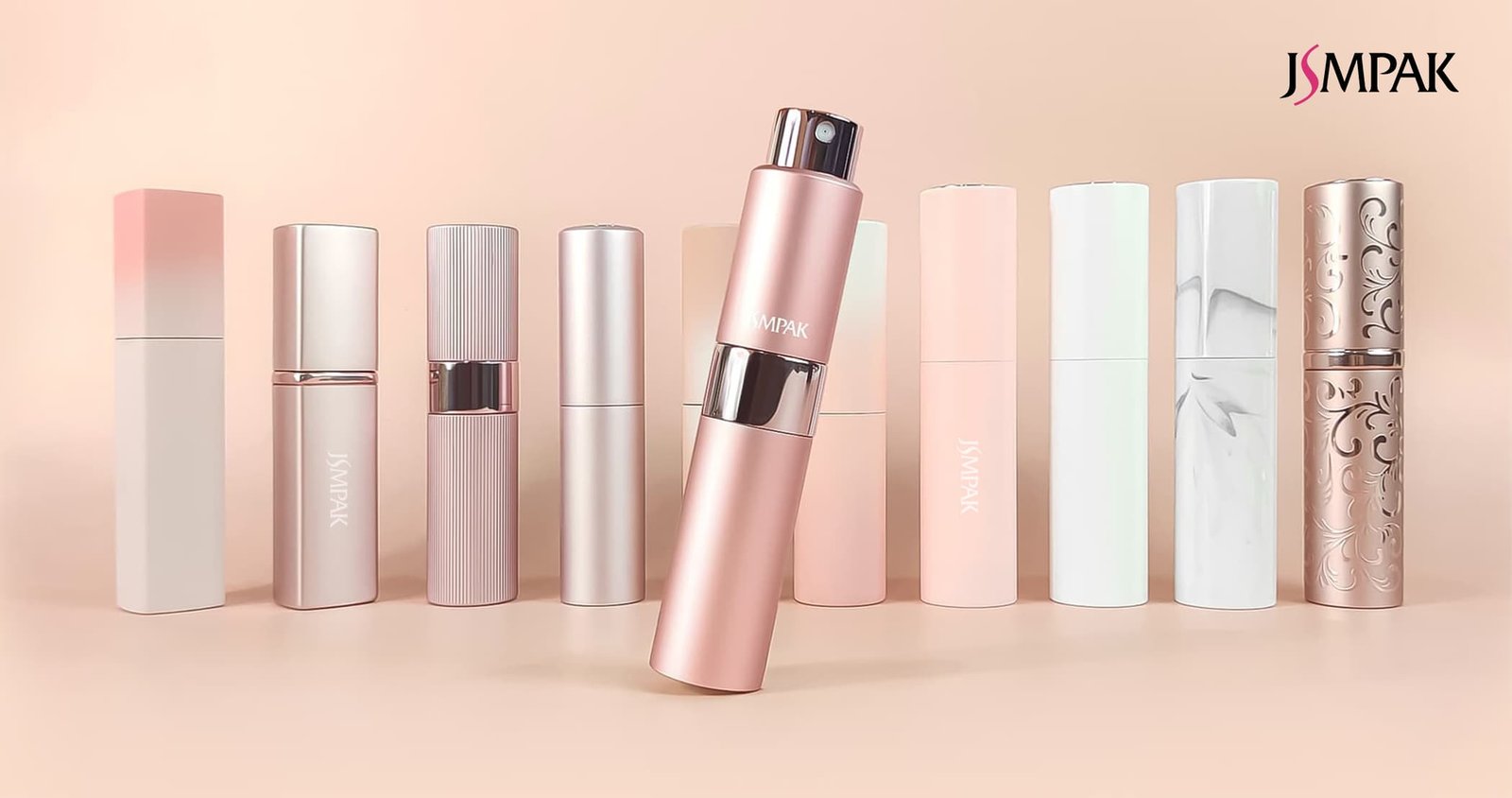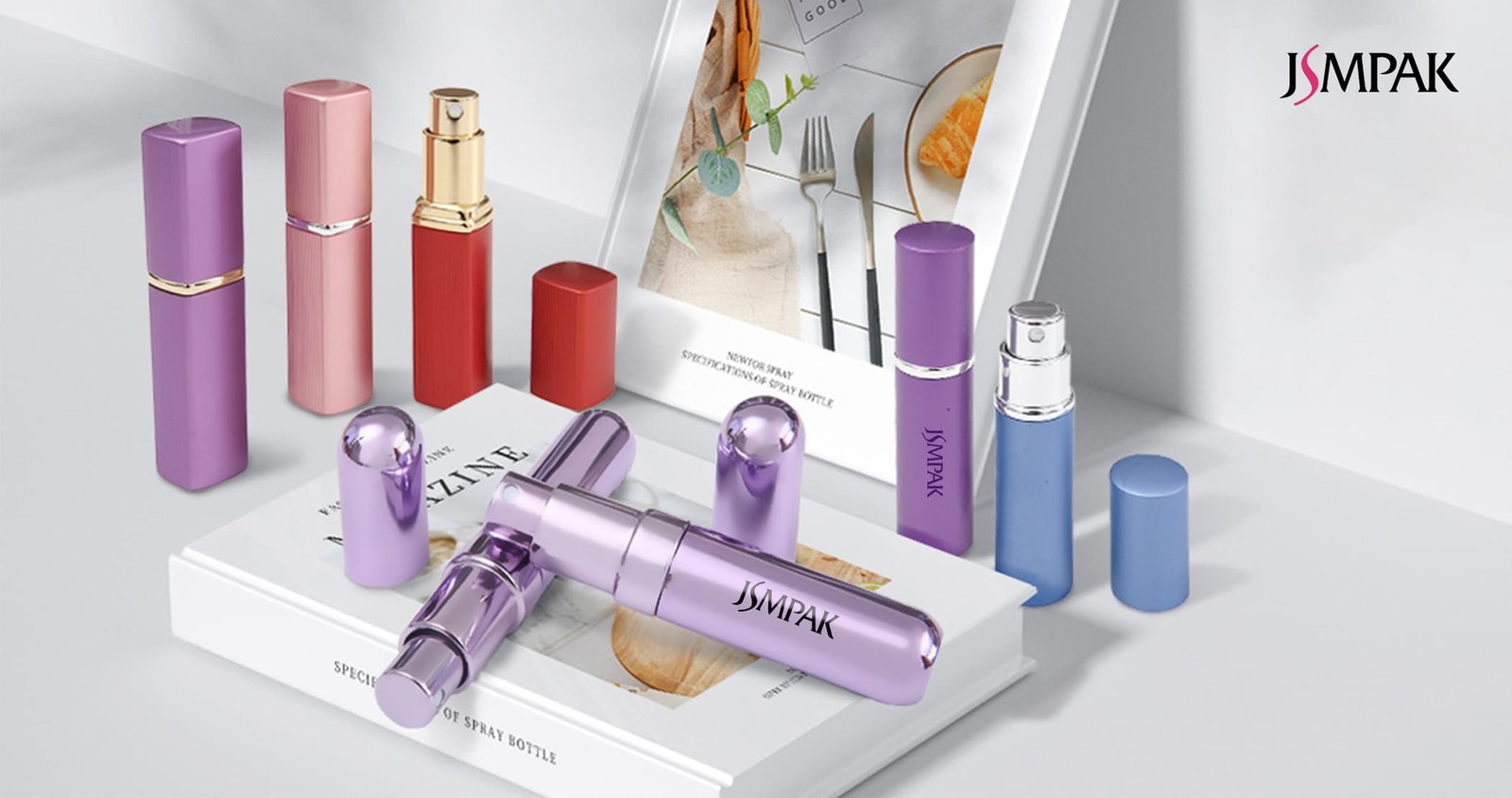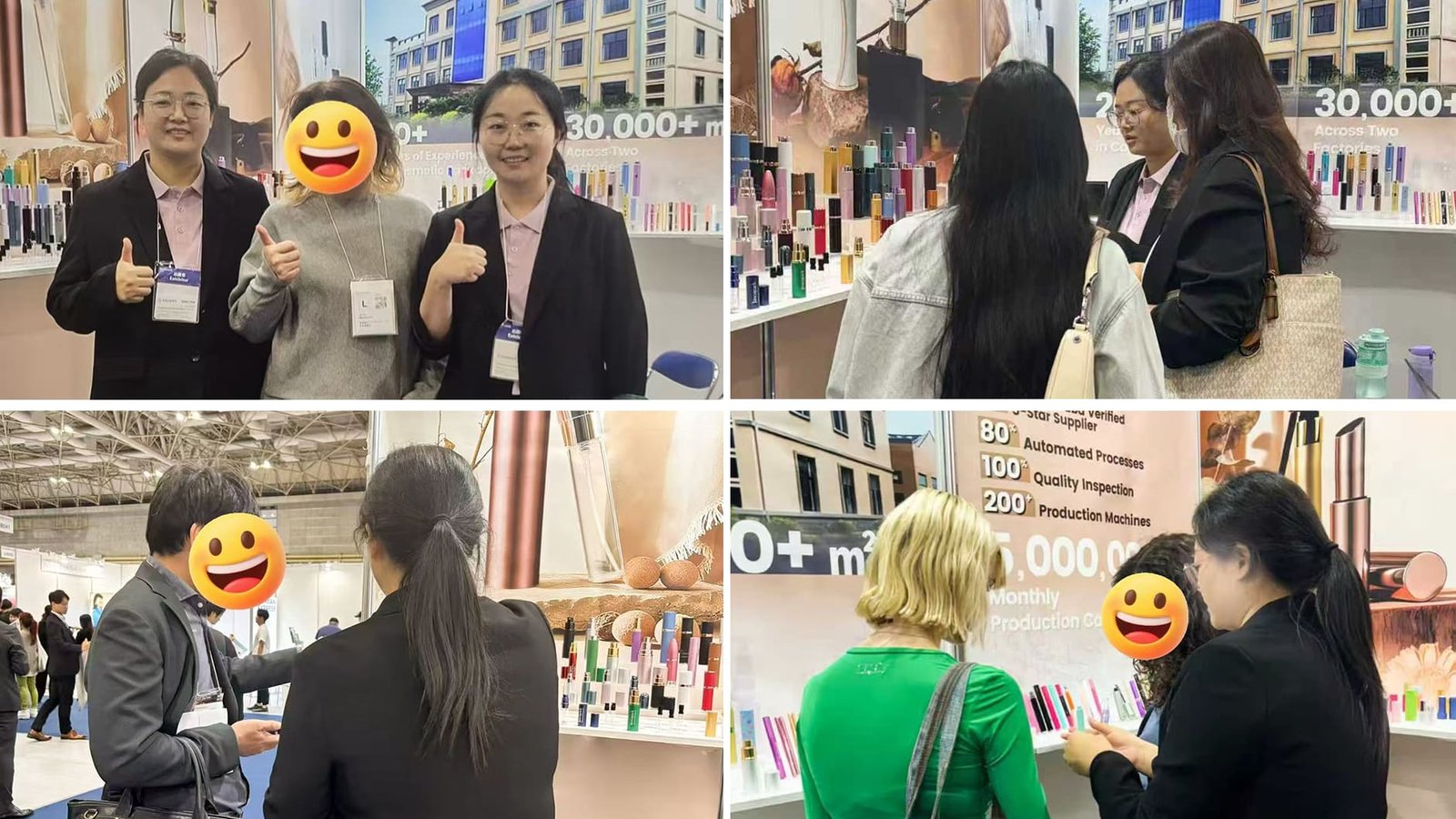Product packaging is one of the most important – and the most neglected – aspects of product development. A literature study published in the Journal of Contemporary Issues in Business and Government highlighted a study that concluded that 26% of customers switched brands because of packaging.
If you put yourself in the consumer’s shoes, what would you choose: a cosmetic product with low-quality packaging or a cosmetic product with presentable, reliable, and high-quality packaging?
Now, if you think from the mind of a true business person, you need to understand the changing trends of the market. Currently, we are living in an age where cosmetic packaging is often considered an extension of beauty and fashion but many people may overlook the hazards associated with makeup product packaging.
No doubt, eye-catching boxes and bottles can enhance a product’s appeal but it’s also important to be mindful of the environmental and health implications of customer’s purchasing decisions.
So what’s the cosmetic packaging solution? How can you attract customers to buy your cosmetic products and at the same time, be mindful of the environment?
The solution is simple: use high-quality and eco-friendly material and choose a wholesale cosmetic packaging manufacturer that puts a huge emphasis on product quality management. In this article, we have described three affordable and eco-friendly cosmetic packaging wholesale solutions that will keep you a step ahead of everyone in the beauty industry.
But now you might be thinking that choosing a supplier that does not compromise on quality might be expensive. But what if we told you that it’s possible and very easy to find wholesale cosmetic packaging solutions? So make sure to read until the end to clear all of your queries.
Wholesale Packaging Solutions for Your Cosmetic Products
First of all, let’s take a look at three different materials that can act as cosmetic packaging solutions to your problems.
Glass Packaging

Glass packaging is not only known for its eco-friendly qualities but also for its timeless elegance. Unlike plastic which is derived from petroleum – a finite source, glass is produced from readily available silica sand, limestone, or soda ash.
Plus the manufacturing of glass, itself, is a closed-loop system as recycled glass can be used to reduce the need for new raw material and to minimize waste in the production of this material.
However, the sustainability of glass goes beyond its products as glass packaging allows consumers to refill and repurpose makeup or skincare product containers for multiple purposes. This reduces the reliance on single-use plastic. Moreover, glass is highly recyclable as its recycling rate exceeds 80% in some countries. This means that if garbage is taken out properly, glass containers are not destined for landfills but are instead transformed into new products which minimizes their environmental footprint.
Apart from environmental benefits, glass is also remarkable when it comes to safety. Chemically stable glass neither interacts with the product nor leeches harmful substances in the product.
This is especially important for skincare products, where there is a risk of skin irritation or allergies. Glass packaging also offers excellent protection against bacteria and microorganisms, preventing product contamination and increasing the shelf life of your skincare or makeup product.
These benefits stem from two key properties of glass when it comes to safety: it is inert and non-porous. This ensures that the material does not interact with the product it contains, preserving the integrity of skincare or makeup formulas.
Moreover, glass serves as an ideal choice for cosmetics sustainable packaging, as it is recyclable and reusable, reducing environmental impact while maintaining premium quality. For brands seeking biodegradable cosmetic packaging, glass complements eco-friendly practices by providing a sustainable alternative that protects natural or organic ingredients without compromising their purity.
Its impermeable nature also shields cosmetic jars, containers, and other health and beauty products from external elements like air and light, ensuring that your products remain fresh and effective. By choosing glass, you not only ensure product safety but also align with modern consumer preferences for sustainability in cosmetic packaging.
However, safety and eco-friendly properties are not the only things that attract consumers to buy products that are packaged within glass containers.
So what is it? Well, it is a smooth and transparent surface that showcases the beauty of your cosmetic jars or other health and beauty products by allowing their colors and textures to shine through.
Also, the weight and feel of the glass gives a sense of quality and value which is the reason why many premium brands in the beauty industry opt for glass packaging.
Moreover, glass packaging can be customized and decorated in different ways like etching, embossing, labeling, or printing to create a unique and attractive design for your cosmetic brand.
Let’s take a look at some of the glass-based cosmetic packaging supplies that are offered by Jasmine Packaging;

Our Mist Sprayer Glass Perfume Tester Bottle is made of glass that gives it a matte and shiny finish. Its surface can handle screen printing, silk screen, and hot stamping that allows businesses to print their logos in different ways. Speaking of logos, businesses can also get customized glass bottles in bulk.
Our Refillable Transparent Black Fine Mist Glass Spray Cologne Bottles come in three different colors and four volume variations of 2ml, 3ml, 5ml, and 10ml. Since it’s made out of glass, it can bear silk screening, anodizing, and laser printing. This product is delivered to customers after heavy testing and quality check, because of which, it has been certified by ROHS..
No doubt, glass packaging has many benefits but you also need to be aware of some disadvantages. For example, some glass materials are more fragile than others so they might. e difficult to handle during production, transportation, and retail processes.
Plus, glass packaging can be high in cost as compared to other options. However, you can make sure that the material is not too fragile by contacting your supplier and asking them about the quality of the glass packaging.
Aluminum Packaging

Known as a green metal because of its sustainability, recyclable qualities, and other environmental benefits, aluminum is one of the best eco friendly packaging for cosmetics wholesale solutions for your brand. aluminum has a closed-loop recycling process which means that it can be used repeatedly without repeating its intrinsic properties.
When it comes to the production of aluminum, we see that it’s made from bauxite. The extraction of bauxite has become quite sustainable over the years as companies are implementing sustainable mining practices now.
One of the standout features of aluminum cosmetic packaging is its high recyclability rate. This helps reduce the demand for new raw materials that cut down on the environmental impact associated with mining and extraction.
When aluminum is recycled, less energy is required than what is needed to produce it from raw materials so there’s not only one benefit i.e. recycling but also we are seeing the reduction in carbon footprint that’s caused by using fuel-based energy.
In glass packaging, we see that it’s heavy which is good as it gives it a premium feel. However, that’s not always what the customer is looking for. Many consumers prefer lightweight packaging to carry it conveniently in their everyday bags. So if you’re in favor of lightweight packaging then aluminum is the most suitable option for you.
If you think about it as a business person, then it will lower transportation costs and as you know, light packaging requires less energy for shipping which leads to lower emission of harmful gasses so it leaves an overall good environmental impact.

When it comes to durability, nothing can beat aluminum. Aluminum is prone to breakage so it can handle tough conditions a product has to face when you transport it.
This reduces product waste and will surely prevent you from getting bad reviews if you’re doing an online cosmetic business as one of the most common bad reviews is about packaging that broke or leaked the product on the way.
Aluminum packaging also acts as a barrier against light, oxygen, and moisture: three primary culprits that can compromise the quality of your beauty products.
Light-sensitive skincare products like retinol and certain vitamins are protected from light and aluminum Aldo prevents the formation of mold or bacteria which can extend their shelf life.
However, nothing is perfect even though aluminum has numerous benefits; it also has some disadvantages. Compared to plastic or glass, aluminum-based products face limited design flexibility and don’t have transparency which is advantageous to protect the product from light but it may ruin the aesthetics so brands that prioritize intricate or unique designs on packaging may find it less useful.
Also, some customers might perceive its lightweightness wrongly. They might assume that it’s a low-quality product.
But overall, it’s a good material and Jasmine Packaging has found a solution to these cons by combining glass and aluminum in most of its packaging solutions.
For example, most of our spray bottles and perfume atomizers are made like this; glass on the inside and aluminum on the outside. Some products like aluminium small refillable perfume atomizers have a small glass window that shows the beautiful color and texture of your product.
Plastic Packaging

Lastly, we have plastic packaging, and yes, plastic packaging sounds horrible and the worst material to many of us. But we don’t realize that plastic comes in many variations.
Some plastics are made with materials that are neither safe for the environment nor for the health of consumers. However, some plastic materials are somewhat safe to use.

For example, at Jasmine Packaging, we use safe plastic to manufacture most of our products. For example, most of the plastic perfume bottles at Jasmine Packaging are made using PP plastic and our cometic pens are made using both PP and PC plastic. But what are these materials? and are they sustainable? Let’s have a look!
Polypropylene or PP is produced in a way that requires less energy compared to other versions of plastic. PP is also known to be recyclable as many recycling facilities accept this type of plastic.
Polypropylene is also durable which means that it can withstand the harsh environment of transportation and storage without easily breaking or cracking like the glass does.
It is also non-toxic and resistant to most of the chemicals as well as moisture which makes it easy to preserve the shelf life of the product if you use it as the packaging material of your beauty products. It can be flexible for design purposes.
Similarly, PC or Polycarbonate is also durable and provides huge design flexibility. It is also resistant to heat which means that it can withstand high temperatures without deforming which can protect sensitive cosmetic products like cosmetic jars or cosmetic containers in warm environments.
However, it would be wrong to say that PP and PC plastics are 100% sustainable because even though PP and PC plastics are recyclable, not all products end up being recycled due to various factors like improper recycling infrastructure and consumer behavior. Especially when it comes to PC plastic, the recycling process is not very efficient.
PP plastic is not as transparent as some other plastics. This point must be kept in context, especially for those cosmetic products where visibility of the contents is important for customer appeal or marketing in general. However, when considering cosmetics sustainable packaging, transparency is just one aspect of the broader discussion about materials’ environmental impact.
The production process is not entirely clean as some manufacturing sites might use fossil fuels, contributing significantly to carbon emissions. So even though the material itself is energy-efficient to produce, its reliance on non-renewable resources presents a challenge from a sustainability perspective. This drawback is particularly relevant in the growing demand for biodegradable cosmetic packaging, as brands and consumers increasingly prioritize materials with minimal ecological footprints.
Additionally, it becomes complex to assess whether PP and PC plastics are truly sustainable due to external factors. As mentioned earlier, consumer behavior and the availability of recycling facilities play critical roles. This issue, however, is not unique to plastic; materials like aluminum and glass face similar challenges in regions where infrastructure for recycling is underdeveloped. Therefore, the journey toward creating genuinely sustainable cosmetic packaging requires collaboration across industries, governments, and consumers to address these systemic gaps.
How to Address the Safety Concerns of Cosmetic Packaging?
A well-packaged cosmetic product like cosmetic jars plays an important role in product safety as it protects the product from contamination and damage. It also provides information about the product’s ingredients and usage so that people can know if there’s any product that they are allergic to.
However, some cosmetic packaging solutions can pose safety concerns. For example, some packaging materials may contain harmful chemicals that can leak into the product or maybe it’s designed in a way that makes it easy for children to open which might lead to the risk of accidental ingestion or it might be made of material that’s not eco-friendly and cause harm to the ecosystem.
Therefore, it is important for you as a business person to not choose those wholesale cosmetic packaging solutions that may pose a safety threat to your customer, environment, or brand in general. So when you’re deciding this, keep these things in mind:
Look for packaging made from eco-friendly materials like the ones we enlisted earlier that can be found at Jasmine Packaging easily.
Try to avoid packaging made from harmful plastics, especially those containing BPA, phthalates, or other hazardous chemicals. While not all plastic is bad, it’s essential to choose materials carefully.
Opt for cosmetics sustainable packaging that prioritizes safety, such as designs that are not easily opened by children, helping to prevent accidental ingestion.
Consider the unique chemical composition of your products, as certain materials may react differently. Packaging compatibility is crucial to maintaining product integrity and safety.
Additionally, reduce unnecessary packaging elements like plastic inserts or excessive cardboard boxes, as these contribute to waste. Instead, explore biodegradable cosmetic packaging solutions that are eco-friendly and minimize environmental impact without compromising functionality or aesthetics.
How Cosmetic Retailers Can Choose Reliable Cosmetic Packaging Suppliers?
While choosing a reliable cosmetic packaging supplier or manufacturer, you need to make sure that their product checks all (or at least, most) of the boxes we enlisted in the previous section. But there are some other things you need to keep in mind to ensure that the quality, safety, and appeal of the product is top-notch. Here are the boxes to tick;
Make sure that your packaging supplier complies with relevant regulations and standards for cosmetic packaging. This includes adhering to guidelines set by regulatory authorities like the FDA, EU Cosmetic Regulations, NOA, etc. One way to ensure that is by checking the certifications of the supplier. For instance, Jasmine Packaging has been certified by NOA, MSDS, ZTS, and other authorities which can be seen on the website of the company.
As you know by now, the environmental impacts of packaging materials must be considered. So opt for suppliers who offer eco-friendly solutions like the one we mentioned earlier and make sure that they are committed to sustainable practices.
Choose suppliers who are transparent about the sourcing of the materials. Knowing the origin of materials can help in assessing their safety and ethical standards. Plus, make sure that the supplier is transparent about the manufacturing process of their packaging solution.
Jasmine Packaging has explained the whole process of assembling packaging products like perfume atomizers in detail. They have also mentioned in detail how quality is ensured in the process.
The supplier should have a good reputation and high experience. Jasmine Packaging has been working in this field for 19+ years and has 800+ global customers from 120+ countries. You can look for testimonials and customer reviews to make sure that the company is authentic.
And don’t forget to contact the company to get more details. You can ask them for details like their sustainable approach and vision, total quality management practices, manufacturing method, material that was used, sourcing of the material, and any other question you might have in your mind. If you have any questions about products of Jasmine Packaging, let us know by contacting our customer service department.
Conclusion
Like many other industries, the cosmetic industry also has the responsibility to be eco-conscious and minimize its environmental impacts. One way to achieve this is by adopting cosmetics sustainable packaging solutions, including materials like eco-friendly plastic, glass, and aluminum. These options not only help reduce waste but also enhance a brand’s commitment to sustainability.
In addition to these materials, biodegradable cosmetic packaging is gaining popularity as it offers an eco-friendly alternative that decomposes naturally over time, leaving a smaller footprint. Each type of solution comes with its benefits and trade-offs, so the best choice for your business will depend on factors such as product type, target audience, and sustainability goals.
If you are looking for affordable and eco-friendly cosmetic packaging wholesale solutions, please contact Jasmine Packaging today. We have a wide variety of packaging products to choose from, and we can help you find the perfect solution for your business.



